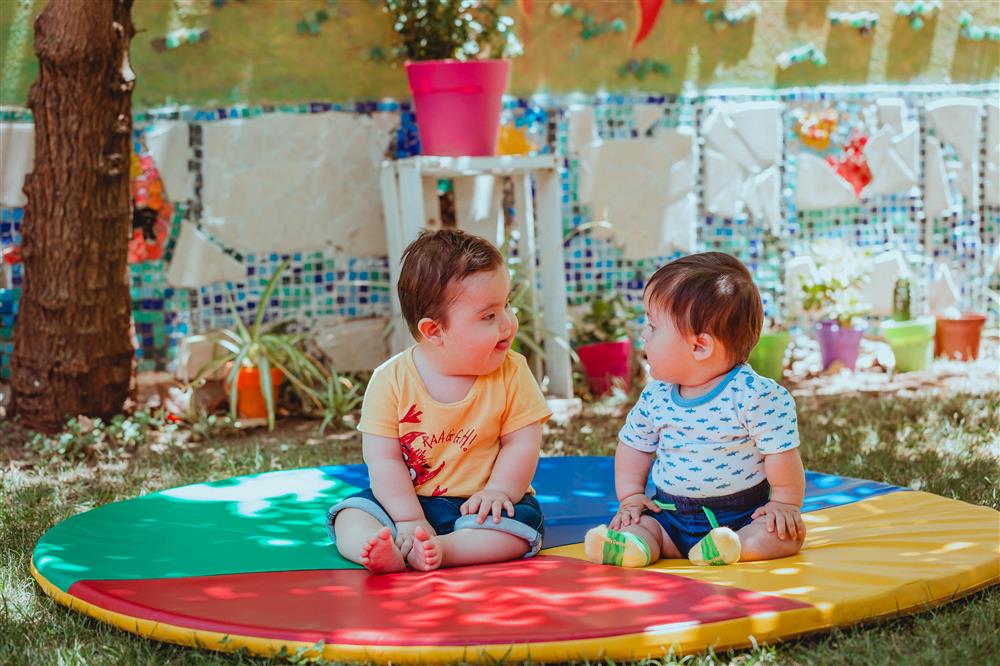Early stimulation programme for children with Down Syndrome in an academic setting
- Solution
- Programa de Estimulación Integral del Desarrollo (PEID)
- Country of Implementation
- Chile
- Start Year
- 2017
- First published
- 03.12.2023

Solution details
“They showed us that each person and each brain is a world to discover.” Natalia Vilches, mother of a 9-month old child with Down Syndrome
The Santiago-based Centro UC Síndrome de Down, affiliated with Pontificia Universidad Católica de Chile, has developed a Comprehensive Developmental Stimulation Programme (SIDS) for children aged 0–6 years with Down Syndrome to support their early childhood development. Children are stimulated through group activities that promote their personal and cognitive development as well as their emotional well-being and interpersonal relationship skills through arts and psycho-education. Starting in 2017 with 15 children, the programme served 48 children in 2023.
Problems Targeted
There are no public programmes in Chile to ensure the development of children with Down Syndrome through early stimulation adapted to their needs.
Solution, Innovation and Impact
The Centro UC Síndrome de Down is an interdisciplinary institution of the Pontificia Universidad Católica de Chile and is dedicated to improving the quality of life of people with Down Syndrome, from prenatal life to old age. In 2017 a team consisting of a paediatrician and professionals from the fields of special education, physiotherapy, speech therapy, occupational therapy, art therapy, and psychology developed the Programa de Estimulación Integral del Desarrollo (PEID). This comprehensive developmental support programme focuses on children with Down Syndrome aged 0–6 years, the time when brain plasticity is at its greatest and young children can realize their maximum developmental potential. The programme focuses on several developmental areas, including communication, cognition, psychomotor skills, emotional well-being, and social relationships. It consists of two sub-programmes: PEID I, for children aged 0–3 years; and PEID II, for children aged 3–6 years. This group approach allows for interaction, participation, and recognition in the community, based on systematic individual assessments and personalized adjustments. Between 2017 and 2023 the number of supported children grew from 15 to 48. In 2019 complementary activities, such as webinars and workshops for siblings and grandparents, were implemented.
Funding, Outlook and Transferability
The programme is half self-funded and half funded by the participating families, with grants for lower-income families through funding by families of higher means. Further funding comes from donations from private individuals and businesses. There is already an experience of replication in Chile. Future goals include expanding the programme to other regions, and providing support materials for families and communities. (Awardee 2024)
Media
Pictures
Related information
- Connections
- 1
-
People